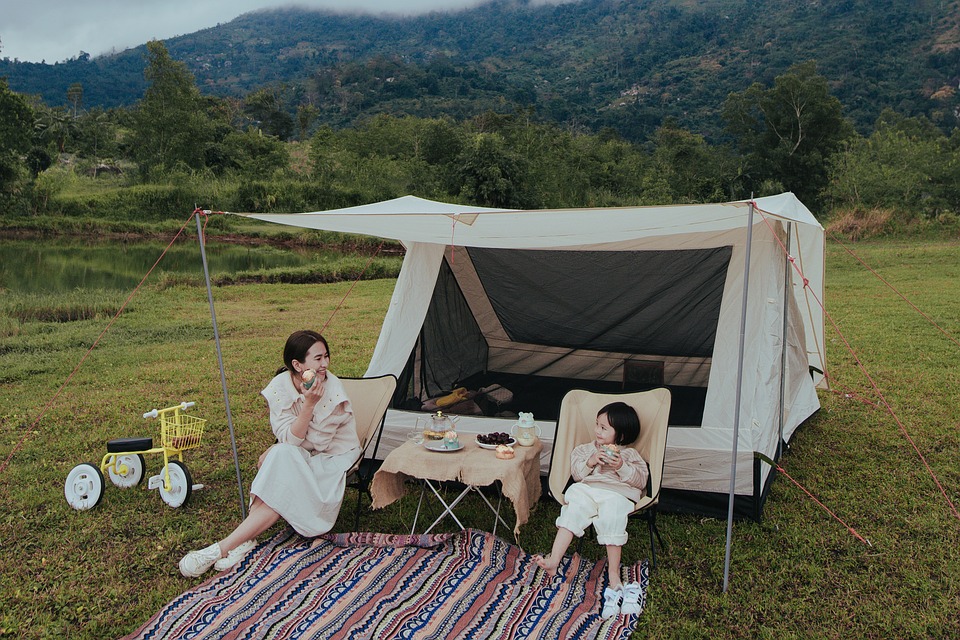Table of Contents
Introduction
Camping in the great outdoors is a wonderful way to connect with nature and escape the hustle and bustle of everyday life. However, bug bites and encounters can quickly dampen the camping experience. To ensure a bug-free camping adventure, take note of the following essential tips.
1. Choose Your Campsite Wisely
One of the first steps to ensure a bug-free camping experience is to carefully select your campsite. Avoid areas with stagnant water, as they attract mosquitoes and other bugs. Look for a campsite that is situated away from tall grass and dense vegetation, as these areas are often home to ticks and other pests.
2. Set Up Your Campsite Properly
Once you have chosen your ideal campsite, take the necessary steps to set up your campsite properly. Clear away any debris, such as leaves, twigs, and rocks, as these can attract bugs. Use a groundsheet or tarp under your tent to create a barrier between you and the ground-dwelling bugs.
3. Dress Appropriately
Your choice of clothing can play a significant role in protecting yourself from bug bites. Wear long-sleeved shirts and long pants, preferably in light-colored fabrics. Bugs are generally less attracted to light colors, and the extra coverage reduces the exposed skin for bugs to target.
4. Apply Insect Repellent
Insect repellent is a vital tool in keeping bugs at bay. Look for a repellent that contains DEET, which is effective against mosquitoes and ticks. Apply the repellent to exposed skin, making sure to follow the instructions on the label. Remember to reapply as recommended and avoid applying it to cuts or irritated skin.
5. Utilize Bug Screens and Nets
If your camping gear includes screens or nets, use them to your advantage. Make the most of bug screens on tents, windows, and doors to keep bugs out while still allowing fresh air to circulate. A mosquito net can also be useful when sleeping outdoors or in areas with a high concentration of bugs.
6. Keep Your Campsite Clean
Bugs are attracted to food and garbage, so maintaining a clean campsite is crucial. Seal your food in airtight containers and store it away from your sleeping area. Dispose of trash properly and keep your cooking and eating areas clean to minimize the presence of bugs.
7. Be Mindful of Peak Bug Activity Times
To have a bug-free camping experience, it’s essential to be aware of peak bug activity times. Mosquitoes are most active during dawn and dusk, so take extra precautions during these times. Plan your activities accordingly, opting for indoor or bug-free activities during these periods.
8. Use Natural Remedies
If you prefer natural alternatives, there are several bug-repellent options available. Essential oils like citronella, lavender, and tea tree can help repel bugs. You can apply these oils directly to your skin or incorporate them into homemade bug sprays or candles. However, keep in mind that natural remedies may not be as effective as DEET-based repellents.
FAQs
Q1: What are the most common types of bug bites while camping?
A1: The most common bug bites encountered while camping are mosquito bites, tick bites, and bites from various flying insects like flies and gnats.
Q2: Are there any natural ways to reduce itching caused by bug bites?
A2: Yes, several natural remedies can help alleviate itching caused by bug bites. Applying a paste made from baking soda and water, using a cold compress, or using over-the-counter hydrocortisone creams can provide relief.
Q3: How can I check for ticks after a camping trip?
A3: After a camping trip, it’s essential to thoroughly check your body and clothing for ticks. Pay extra attention to areas like the scalp, behind the ears, under the arms, between the legs, and behind the knees. If you find a tick attached to your skin, use tweezers to remove it carefully.
Q4: Can bug bites transmit diseases?
A4: Yes, bug bites can transmit diseases. Mosquitoes, for example, can carry diseases such as West Nile virus, Zika virus, and malaria. Ticks can transmit Lyme disease and other tick-borne illnesses. It’s crucial to take preventive measures and consult a healthcare professional if you develop symptoms after getting bitten.
Q5: Can certain scents attract bugs while camping?
A5: Yes, certain scents can attract bugs while camping. Avoid wearing heavily scented perfumes, lotions, or hair products, as they may attract bugs. Additionally, scents such as sweat, food, and sugary beverages can also attract bugs, so it’s important to stay clean and avoid leaving out open containers of food or drinks.





